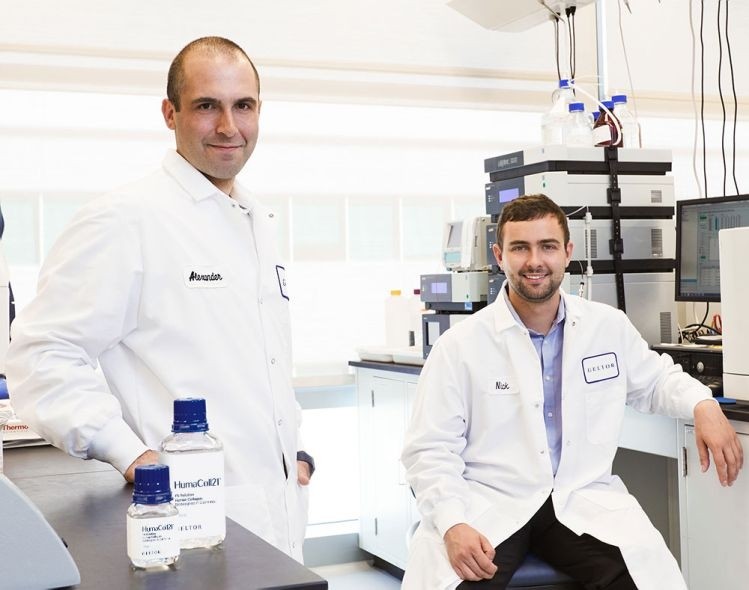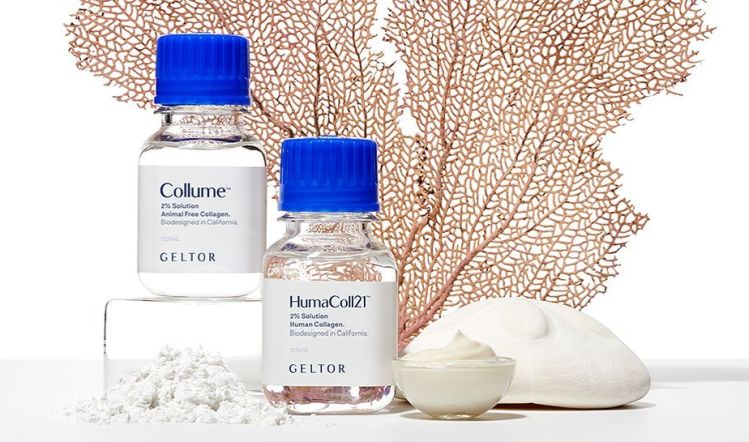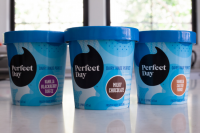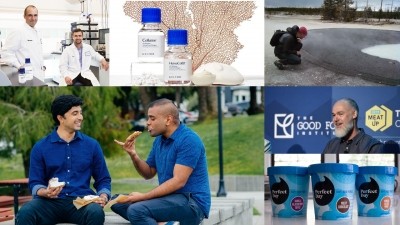Geltor teams up with GELITA to commercialize animal-free ‘biodesigned’ collagen for supplements

Geltor – which raised $18.2m last year in a Series A round from investors including GELITA - is using synthetic biology techniques to engineer micro-organisms to produce collagen (which is currently extracted from animal skin, bones, and connective tissue) via a fermentation process without using or harming animals.
While Geltor can make familiar collagen proteins such as gelatin via its fermentation platform, it can also produce customized proteins with tailored nutritional and functional properties, enabling the production of ‘new to the world’ designer proteins, said co-founder Alexander Lorestani, who studied medicine at Rutgers and bacterial pathogenesis at Princeton and started Geltor with molecular biologist Nikolay Ouzounov in 2015.
"I can't provide any more details at this time but the protein we're working on with GELITA will be a unique offering in the industry that can provide distinct advantages, and not just because it's made without animals. It's not just a straight up replacement for type I pig collagen."
'We'll continue to look ahead to the broader food and beverage industry to strike partnerships there'
According to a letter of intent signed at the Supply Side West trade show in Las Vegas today, Geltor will design and produce the collagen protein, while GELITA will conduct clinical research and commercialize the product, explained Lorestani.
The protein will target the dietary supplement industry, where collagen proteins are currently marketed around areas such as joint health; beauty (skin, hair nails); bone health; and muscle mass maintenance; and would likely be the subject of a new dietary ingredient (NDI) notification, he said.
However, the deal does not preclude Geltor from working with other partners on other products, he said. "The platform we've developed is powerful at producing a variety of proteins - we have a portfolio of more than 200 proteins - so it's about entering and partnering with leading businesses in a particular vertical, and then saying hey, how can we serve the needs of partners across this industry?
"This a first step, but we'll continue to look ahead to the broader food and beverage industry to strike partnerships there, whether that's on an ingredient to provide a physical function [such as gelatin with a particular melting temperature, stiffness, or elasticity] or an active function [for a particular health benefit] that will be dependent on the partner.
"We're building the business to broadly serve the CPG industry."

The appeal of animal-free protein
But what’s the appeal of animal-free collagen for customers and consumers?
Aside from the appeal of new ‘designer’ proteins, many companies are interested in animal-free proteins for environmental, ethical or religious reasons, said Lorestani, who noted that many consumers don’t realize that the collagen found in consumer products today is sourced from the skin and bones of livestock.
Pork-derived gelatin is not halal or kosher, while bovine gelatin is only halal if the animals were slaughtered in a certain way, he noted. Some companies also have concerns about animal diseases [eg. BSE], restrictions on supplies, sustainability [collagen is currently sourced from cows, pigs and fish] or they just want to be able to offer vegan products.
Geltor starts with a suite of microbes that naturally produce proteins but then inserts DNA sequences - basically a set of instructions - that effectively 'program' those microbes to produce collagen proteins.
The company has filed multiple patents covering its use of machine learning and modified bacteria to produce collagen proteins and is continuing to grow its IP portfolio, which has been very important for partners, said Lorestani.
While a flurry of startups have entered the microbial fermentation space in recent years using yeast, fungi and bacteria to produce everything from milk to egg proteins, Geltor has impressed potential partners with the "pace at which we can move," said Lorestani.
“By 2030, the US dairy and cattle industry will have collapsed,” as ‘precision fermentation’ – producing animal proteins more efficiently via microbes – disrupts food production as we know it, predicts think tank RethinkX, which critics argue is living in “a vegan fantasyland.”
Read more HERE.



















